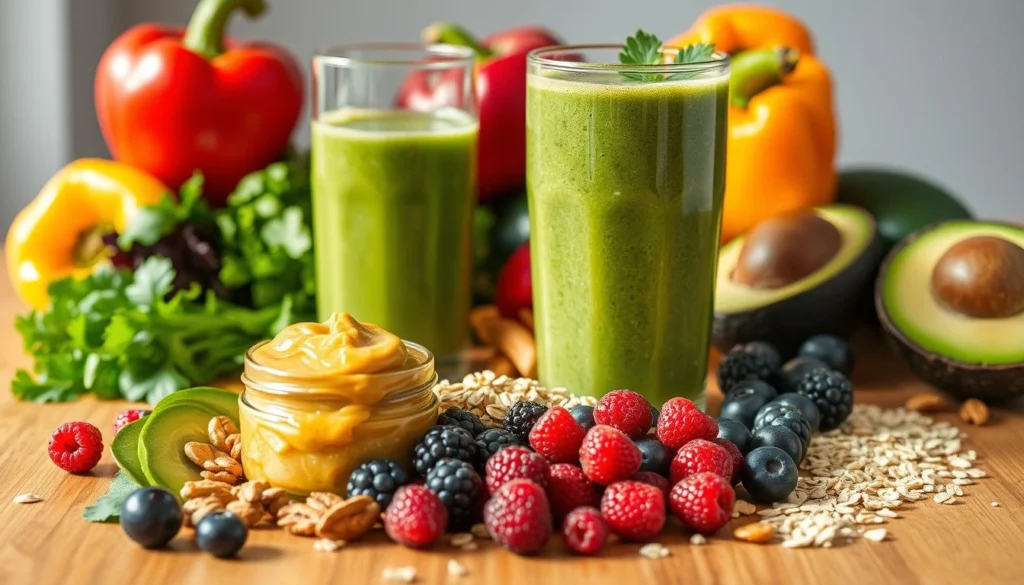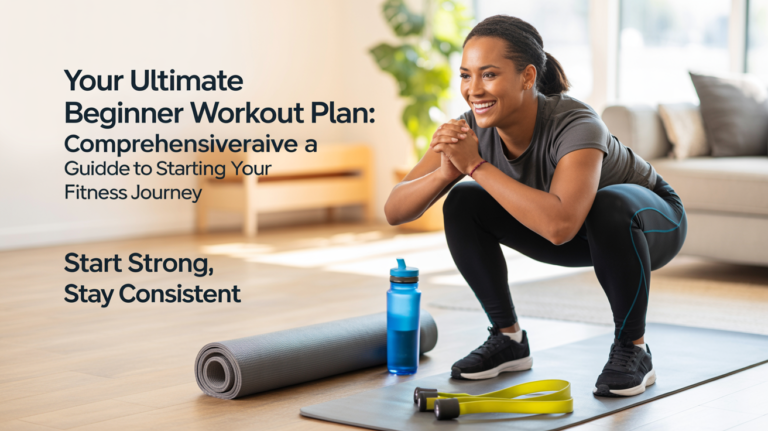What to Eat Before a Workout, According to Nutritionists
Fueling your body before exercise is key for top performance and recovery. Nutritionists say a good meal before can really improve your workout.
Choosing the right foods can increase your energy and help you reach your fitness goals. Nutrition before exercise is more than just eating; it’s about giving your body the right nutrients for your workout.
The Science Behind Pre-Workout Nutrition

Knowing the science of pre-workout nutrition is key to better workouts. What you eat before exercising greatly affects your workout performance. The right pre-workout fueling boosts your energy, endurance, and workout experience.
How Food Fuels Exercise Performance
Eating before a workout gives your body the nutrients it needs to perform well. Carbohydrates are vital because they turn into glucose, which powers your muscles. A good pre-workout meal should mix carbs and protein for muscle support and satisfaction.
The Role of Glycogen in Muscle Function
Glycogen is a complex carb stored in muscles and the liver. It’s a key energy source during exercise, especially for intense activities. Eating carbs before a workout helps refill glycogen stores, enabling more intense and longer workouts.
| Nutrient | Role in Exercise | Examples |
|---|---|---|
| Carbohydrates | Primary energy source | Oatmeal, bananas, whole wheat bread |
| Protein | Muscle support and recovery | Eggs, Greek yogurt, lean meats |
| Glycogen | Stored energy in muscles | Replenished through carbohydrate intake |
By grasping how nutrients affect your workout, you can choose better pre-workout foods. This leads to better performance and results.
Why You Should Eat Before a Workout
Eating before you work out is key to better energy, endurance, and recovery. It gives your body the fuel it needs to perform at its best.
Enhanced Energy and Endurance
A balanced meal or snack before your workout boosts your energy. Your body turns these nutrients into energy, helping you do more and longer. Sports nutritionist says,
“Eating before exercise is like putting premium gasoline into your car; it makes it run better and longer.”

Improved Performance Metrics
Eating before a workout can also improve your performance. A study in the Journal of the International Society of Sports Nutrition showed athletes who ate before working out did better than those who didn’t.
| Performance Metric | Fasted State | Fed State |
|---|---|---|
| Endurance Time | 60 minutes | 75 minutes |
| Maximum Strength | 100 lbs | 120 lbs |
Better Recovery Outcomes
Lastly, eating before working out helps with recovery. It keeps your body in a positive nitrogen balance, which is good for muscle recovery and growth.
In summary, eating before working out has many benefits. It boosts energy, endurance, and performance, and helps with recovery. By understanding the importance of eating before working out, you can improve your fitness journey.
Carbohydrates: Your Primary Pre-Workout Fuel
Carbohydrates are key for energy before working out. Knowing how to use them can boost your performance.
Simple vs. Complex Carbohydrates
Carbs are either simple or complex. Simple carbohydrates, like sugars, give quick energy. Complex carbohydrates, such as whole grains, release energy slowly. A mix of both is best for pre-workout.
Choosing between simple and complex carbs matters. Simple carbs give quick energy, while complex carbs keep energy up longer.
Optimal Carb Portions Based on Workout Intensity
The carbs you need before a workout depend on how hard and long you’ll be working. For easy workouts, a little carb is enough. But for tough or long workouts, you’ll need more carbs.
- For low-intensity workouts, consume 0.5-1 gram of carbs per kilogram of body weight.
- For moderate-intensity workouts, aim for 1-2 grams of carbs per kilogram.
- For high-intensity workouts, consume 2-3 grams of carbs per kilogram.
Best Carbohydrate Sources for Pre-Workout Nutrition
Picking the right carbs is important for good pre-workout nutrition. Here are some top choices:
- Whole grain bread or wraps
- Oatmeal with fruits or nuts
- Bananas for a quick energy boost
- Sweet potatoes for complex carbohydrates

By focusing on carbs and choosing the right types and amounts, you can greatly improve your workout.
Protein’s Supporting Role in Pre-Exercise Nutrition
Carbohydrates are the main fuel for your workout. But, protein plays a crucial supporting role in pre-exercise nutrition. Eating protein before exercise helps your muscles work better and recover faster. It’s a key part of your pre-workout meal.
Benefits of Moderate Protein Intake
Eating moderate amounts of protein before a workout has many benefits. It improves muscle function and reduces muscle damage. Studies show that protein before exercise boosts muscle protein synthesis. This is vital for muscle recovery and growth.
Recommended Protein Sources
Choosing the right protein sources is important before a workout. Look for ones that are easy to digest and have a good mix of amino acids. Here are some great options:
- Lean meats like chicken and turkey
- Fish such as salmon and tilapia
- Dairy products like Greek yogurt and milk
- Plant-based options like beans, lentils, and tofu
Combining Protein with Carbs for Optimal Results
Combining protein with carbs before a workout is best. Carbs give you energy, while protein helps your muscles. A meal with both carbs and protein helps you perform better and recover faster. It supports your fitness goals.
The Fat Factor: Why High-Fat Foods Should Be Limited
Dietary fat is crucial for health, but high-fat foods before a workout can harm performance. They slow digestion, causing discomfort and stomach issues during exercise.
How Fat Affects Digestion Before Exercise
High-fat foods slow digestion, leading to discomfort and stomach issues during exercise. This is because fat takes longer to digest than carbs or protein. It can make you feel sluggish and tired.
When Some Fat Is Beneficial
While it’s best to limit high-fat foods before a workout, some fat is good. A small amount of healthy fats like avocado or nuts can give you sustained energy. They also support overall nutrition.
Foods to Avoid Before Working Out
To improve your pre-workout nutrition, avoid high-fat foods like fried foods, rich sauces, and processed meats. Instead, choose balanced meals. These should include complex carbs, moderate protein, and healthy fats.
| Foods to Avoid | Why |
|---|---|
| Fried Foods | High in fat, can cause digestive discomfort |
| Rich Sauces | High in fat and sugar, can cause energy crashes |
| Processed Meats | High in fat and sodium, can cause dehydration |
Being mindful of your dietary fat intake before a workout can improve your performance. It also supports your fitness goals.
Timing Your Pre-Workout Meal
Knowing when to eat before your workout is key to better performance. Eating at the right time fuels your body for exercise. This boosts your energy and endurance.
The 30-120 Minute Window
Studies show eating 30 to 120 minutes before exercise is best. This lets your body digest and use the nutrients for energy. Eating within this window can help optimize performance.
Adjusting Timing Based on Meal Size
The size of your meal affects when you should eat. A big meal needs 1-2 hours to digest, while a small snack is okay 30 minutes before.
“The timing of nutrient intake can influence exercise performance and recovery. Consuming a balanced meal with carbohydrates and protein 1-3 hours before exercise can be beneficial.”
– Journal of the International Society of Sports Nutrition
Individual Factors That Affect Optimal Timing
Things like how your body digests food and the type of exercise you do matter. If you’re sensitive to digestion, eating earlier can prevent discomfort during exercise.
| Meal Size | Recommended Timing |
|---|---|
| Large Meal | 1-2 hours before exercise |
| Small Meal/Snack | 30-60 minutes before exercise |
By thinking about these factors and adjusting your meal timing, you can boost your energy and performance during exercise.
15 Quick and Effective Pre-Workout Meal Ideas
Eating the right foods before exercising can boost your energy and performance. It’s important to find the right mix of nutrients for you and your workout.
15-30 Minutes Before Exercise
When time is short, choose something light and easy to digest. Here are a few ideas:
- A banana with a tablespoon of peanut butter
- A small handful of dried fruits and nuts
- A energy bar
- A glass of sports drink or coconut water
- A small apple with almond butter
30-60 Minutes Before Exercise
For a bit more food, pick something that’s not too heavy. Consider:
- Oatmeal with fruit and nuts
- Whole grain toast with avocado and eggs
- Greek yogurt with berries and honey
- A smoothie bowl with protein powder, banana, and almond milk topped with granola
60-120 Minutes Before Exercise
If you have a couple of hours, you can have a bigger meal. Here are some suggestions:
Breakfast Options
- Scrambled eggs with whole grain toast and fresh fruit
- Oatmeal with banana, almond butter, and honey
- Greek yogurt parfait with granola, berries, and spinach
Lunch and Dinner Options
- Grilled chicken breast with quinoa and steamed vegetables
- Whole grain pasta with marinara sauce, turkey meatballs, and a side salad
- Grilled salmon with brown rice and roasted vegetables
Here’s a summary table of the meal ideas by time:
| Time Before Exercise | Meal Ideas |
|---|---|
| 15-30 Minutes | Banana with peanut butter, dried fruits and nuts, energy bar, sports drink, apple with almond butter |
| 30-60 Minutes | Oatmeal with fruit and nuts, whole grain toast with avocado and eggs, Greek yogurt with berries and honey, smoothie bowl |
| 60-120 Minutes | Scrambled eggs with whole grain toast and fruit, grilled chicken with quinoa and vegetables, whole grain pasta with turkey meatballs |
Try different meals and times to see what works for you. The goal is to fuel your body right without feeling too full or uncomfortable during exercise.
Fasted vs. Fed Training: Should You Eat Before a Workout?
The debate over eating before a workout is intense. Some say fasted training boosts fat burning. Others believe eating before exercise improves performance. Let’s explore the facts and myths of fasted vs. fed training.
The Truth About Fat Burning
Many think fasted training burns more fat. But, research shows fasted training doesn’t necessarily burn more fat overall. When you work out empty, your body uses stored fat first. Yet, your total energy use might be less than after eating.
A study in the Journal of the International Society of Sports Nutrition found no big difference in fat loss between fed and fasted states. This means diet and energy balance matter more than whether you’re empty or full.
Performance Differences Between Fasted and Fed Workouts
Eating before a workout can boost performance. Eating before a workout can provide the necessary energy to perform at a higher intensity. Carbs before exercise keep blood sugar up and delay tiredness.
- Improved endurance
- Enhanced power output
- Better overall performance
A study in the Journal of Strength and Conditioning Research showed eating carbs and protein before exercise helps in endurance exercises.

Who Might Benefit from Fasted Training
While fasted training’s benefits are debated, some might still find it helpful. Those doing low-to-moderate intensity workouts might not see a big drop in performance when empty.
“Fasted cardio can be beneficial for those who are doing shorter, lower-intensity sessions,” says a certified personal trainer.
Some might feel more alert or focused when training empty. But, it’s key to listen to your body and adjust your training as needed.
In conclusion, whether to eat before a workout depends on your needs, exercise type, and diet. Trying both fasted and fed training can help find what works best for you.
Special Considerations for Different Workout Scenarios
Different workout times and intensities need special nutrition plans. Whether you work out in the morning or evening, your meal should match. This helps you perform better.
Morning Workouts
For morning workouts, choose easy-to-digest carbs and some protein. A banana with almond butter or oatmeal with fruit are good. They help prevent muscle loss since you’ve been fasting.
Afternoon and Evening Exercise
Later workouts give you more meal options. Aim for a balanced meal with carbs, lean protein, and healthy fats 1-2 hours before. Grilled chicken with quinoa and veggies is a smart choice.
Pre-Competition Nutrition
Before competing, stick to foods you’ve tried before. Avoid new foods that might upset your stomach. Choose high-carb, moderate-protein, and low-fat meals.
Hydration Strategies to Complement Your Pre-Workout Meal
Proper hydration is key, no matter the workout time. Drink 16-20 ounces of water or a sports drink 1-2 hours before. During your workout, keep drinking to stay hydrated.
In conclusion, adjusting your pre-workout meal for your workout time and intensity matters. Proper fueling and hydration help you reach your fitness goals.
Conclusion: Creating Your Personal Pre-Workout Nutrition Plan
Now that you know how important pre-workout nutrition is, it’s time to make a plan just for you. Think about how hard your workouts are, how long they last, and when you do them. This will help you figure out the right mix of carbs, protein, and fats to fuel your exercise.
When making your pre-workout nutrition plan, try out different foods and times to see what works best. Listen to how your body feels and change your plan if needed. By using the pre-training nutrition tips from this article, you’ll boost your workout performance, help your body recover, and reach your fitness goals.
Understanding the science behind pre-workout nutrition and having a good plan will help you feel more energetic and fit. Start making your own pre-workout nutrition plan today. It’s the first step to reaching your fitness goals.
FAQ
What should I eat before a workout?
Eat a mix of carbs and some protein 30-120 minutes before working out. Good choices include bananas, energy bars, or a small meal with carbs and lean protein.
Is it better to work out on an empty stomach or after eating?
It depends on your goals and needs. Eating before can give you energy and improve your workout. Working out empty can help burn fat better.
How long before a workout should I eat?
Eat 30-120 minutes before your workout. A small snack is okay closer to the time, but a big meal should be eaten earlier.
What are the best carbohydrates to eat before a workout?
Whole grains, fruits, and veggies are great for energy. White bread and sugary snacks also give quick energy.
Can I eat a high-fat meal before a workout?
It’s best to avoid high-fat foods before working out. They can make you feel uncomfortable and slow you down. But a little bit is okay.
How does protein help before a workout?
Protein helps with muscle function and recovery before a workout. Eat a meal or snack with carbs and protein.
Are there any specific foods I should avoid before a workout?
Yes, avoid high-fat, high-fiber, or spicy foods. They can upset your stomach. Also, limit caffeine and sugar to avoid energy crashes.
How can I personalize my pre-workout nutrition plan?
Think about your needs, schedule, and what you like. Try different foods and times to find what works for you.
What’s the best way to stay hydrated before a workout?
Drink lots of water before your workout. Aim for 16-20 ounces 1-2 hours before. Keep drinking water right before your workout.





